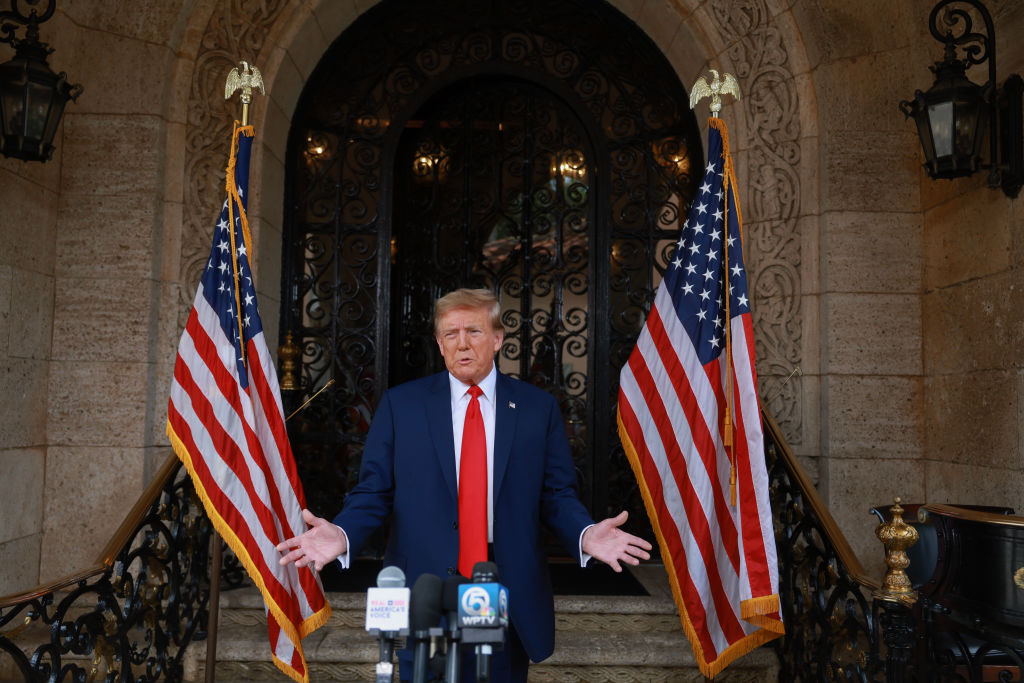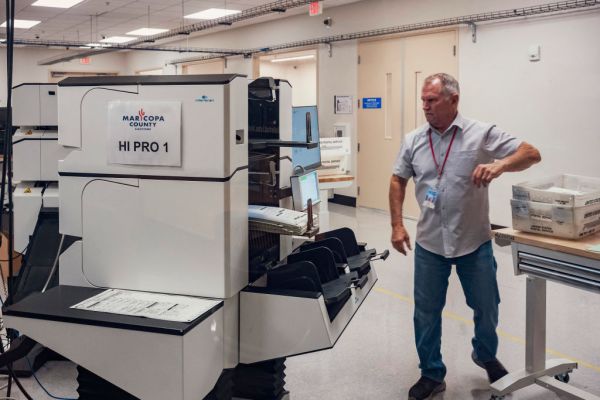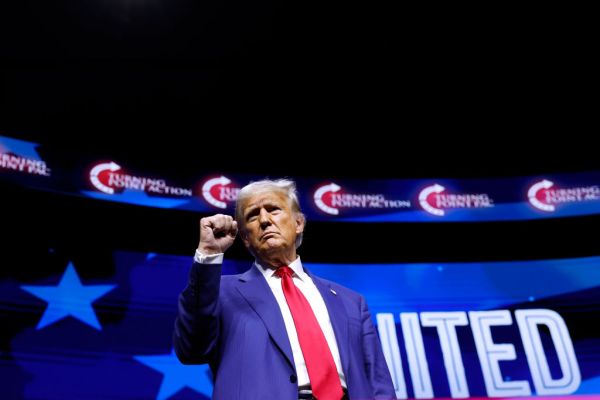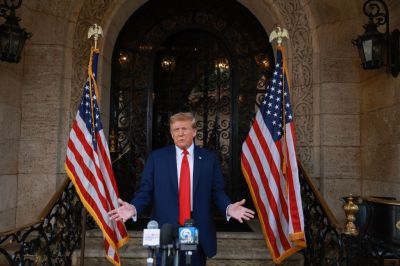A social media user asked whether former President Donald Trump is disqualified from holding elected office by the 14th Amendment’s Section 3.
“OK, section 3 of the 14th Amendment clearly states that a felon cannot take elective office—even if that candidate is the winner of the election,” he asked on Threads. “So, even if trump wins, he cannot become president. Is that incorrect?”
That is incorrect. Section 3 of the 14th Amendment, otherwise known as the Insurrection or Disqualification Clause, bars public officials who had previously sworn an oath and “engaged in insurrection or rebellion” from holding public office again. The clause makes no mention of felony criminal convictions.
The text of the section reads:
No person shall be a Senator or Representative in Congress, or elector of President and Vice-President, or hold any office, civil or military, under the United States, or under any State, who, having previously taken an oath, as a member of Congress, or as an officer of the United States, or as a member of any State legislature, or as an executive or judicial officer of any State, to support the Constitution of the United States, shall have engaged in insurrection or rebellion against the same, or given aid or comfort to the enemies thereof. But Congress may by a vote of two-thirds of each House, remove such disability.
A handful of Colorado voters sued last year to keep Trump off the ballot in that state, citing Section 3. In December 2023, the Colorado Supreme Court ruled in a 4-3 majority decision that Trump was ineligible to appear on the Republican presidential primary ballot. “President Trump did not merely incite the insurrection,” the majority wrote. “Even when the siege on the Capitol was fully underway, he continued to support it by repeatedly demanding that Vice President Pence refuse to perform his constitutional duty and by calling Senators to persuade them to stop the counting of electoral votes. These actions constituted overt, voluntary, and direct participation in the insurrection.” Because Trump had previously sworn an oath of office in 2017, and the Colorado Supreme Court declared Trump engaged in insurrection on January 6, 2021, it decided he was not eligible to appear on the ballot.
Trump appealed the Colorado Supreme Court’s ruling to the U.S. Supreme Court. The nation’s highest court unanimously ruled on March 4 that Colorado could not invoke Section 3 of the 14th Amendment to bar Trump from the ballot. Notably, the U.S. Supreme Court did not rule on whether Trump met the disqualification thresholds of the clause.
From previous Dispatch coverage at the time:
The court didn’t weigh in on Colorado’s determination that Trump had engaged in an insurrection on January 6, 2021, or whether the president was “an officer of the United States” according to the text of the amendment—both issues that had been in question before the oral argument. Instead, all nine justices agreed that a state could not enforce the 14th Amendment against candidates for federal office.
So who can enforce the amendment? That was not unanimous. A five-justice majority held that only Congress could disqualify a candidate—and can do so only through legislation. Members of Congress could not, for example, disqualify him by refusing to certify election results. It also means that federal courts could not determine that Trump had engaged in an insurrection and disqualify him that way. In short, a majority of both the House and Senate would have to pass a law—which, let’s be clear, is not going to happen.
The other four justices—coincidentally, all the women on the court—would have just decided that Colorado didn’t have the authority to disqualify Trump and not answered the question about who else might be able to, as their two separate concurring opinions outline.
Why did the Supreme Court decide that states could not independently invoke the 14th Amendment clause? “The result could well be that a single candidate would be declared ineligible in some States, but not others, based on the same conduct (and perhaps even the same factual record),” the justices wrote in the unanimous decision. “The ‘patchwork’ that would likely result from state enforcement would ‘sever the direct link that the Framers found so critical between the National Government and the people of the United States’ as a whole. … Nothing in the Constitution requires that we endure such chaos.”
If you have a claim you would like to see us fact check, please send us an email at factcheck@thedispatch.com. If you would like to suggest a correction to this piece or any other Dispatch article, please email corrections@thedispatch.com.







Please note that we at The Dispatch hold ourselves, our work, and our commenters to a higher standard than other places on the internet. We welcome comments that foster genuine debate or discussion—including comments critical of us or our work—but responses that include ad hominem attacks on fellow Dispatch members or are intended to stoke fear and anger may be moderated.
With your membership, you only have the ability to comment on The Morning Dispatch articles. Consider upgrading to join the conversation everywhere.